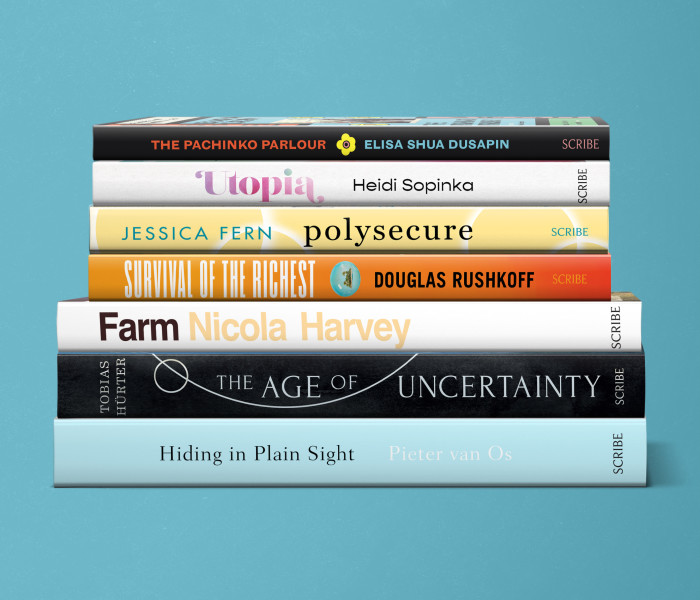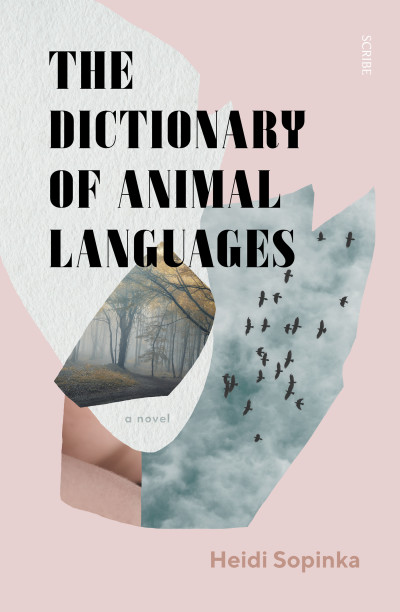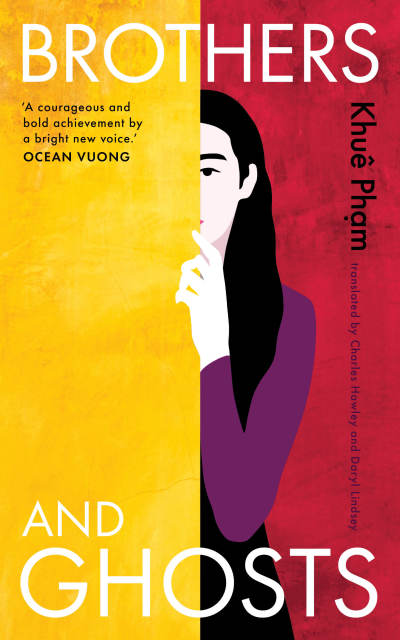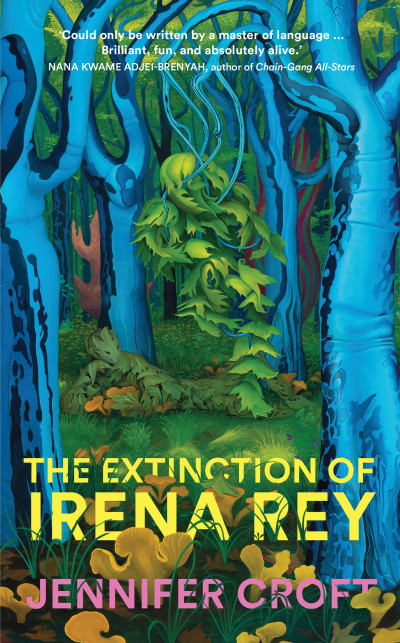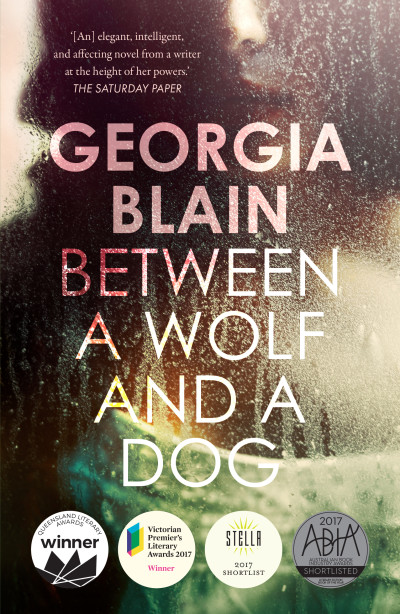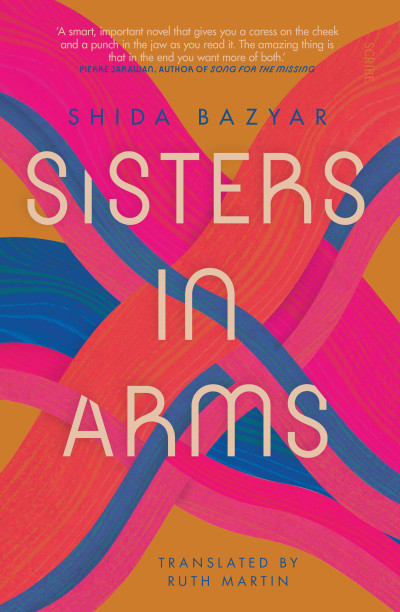‘Utopia is interested in life as performance, in the ways that we attempt to transcend our own bodies, and in what it means to be a woman artist in a world that is run by and for men. Set against the backdrop of the arid California desert, full of scalding cups of diner coffee and burning tarmac highways, this is a book as seething as its parts.’
Saba Sams, author of Send Nudes
‘With tense and glittering writing, Heidi Sopinka’s Utopia blasts the dry desert sun onto the lives and afterlives of a circle of Californian artists, the women they are and the women they love. This is a thrilling book about artistic inheritance, jealousies, and affinities.’
Leanne Shapton, author of Guestbook and Swimming Studies
‘Tense, sexy, and uncanny. Utopia shimmers with desert heat and burns with atmosphere. It’s Rebecca meets Zabriskie Point. Luminous.’
Francesca Reece, author of Voyeur
‘Utopia is a searing novel about art, ownership, and the entanglement of power and performance. Heidi Sopinka’s sentences have a bluish-orange intensity, a captivating energy that conjures a desert at dusk.’
Makenna Goodman, author of The Shame
‘Utopia is a study in contrasts: tart and poetic; sensitive and wild; bright and spooky like the LA light. It drove me onward; it let me linger. It made me angry; it inspired me. Above all, it clinches what we all suspected from The Dictionary of Animal Languages— Heidi Sopinka is a crazy good writer. I'd follow her anywhere.’
Lauren Elkin, author of Flâneuse
‘I was transfixed by Heidi Sopinka’s incandescent prose. It blazed through me and touched my heart in the deepest, most tender place. Utopia is about a powerful bond between mother and daughter; the collision of art, performance, and female friendships; and how grief shapes our ability to love and hope. Sexy, devastating, and wise—this novel will make you feel alive.’
Sanaë Lemoine, author of The Margot Affair
‘Flames of female rage run hot in this shimmering art-world ghost story. Paz, a young artist, marries a major male artist in the wake of the death of his first wife, a brilliant performance artist whose work and life have long obsessed her replacement, and whose fatal fall might or might not have been a work of art. Sensual, mysterious, and provocative, Utopia raises essential questions about women’s marginalisation in the art world, loss of self, and search for artistic grounding, the maternal impulse, and the demands of a life in art. Heidi Sopinka had created a compelling, seductive portrait of a woman’s search for expression and the lure of rage-fueled self-destruction in the face of cultural diminishment.’
Janet Fitch, author of White Oleander and Paint It Black
‘There are many hints of Daphne du Maurier’s Rebecca… Part page-turning mystery, part ode to art and women’s resilience, this is a beautifully odd book that needs and deserves time to seep into the reader’s bones.’
Estelle Birdy, Sunday Independent
‘Utopia cleverly investigates layers of social issues: feminism and its intersections with race and class; gender roles in life and in art; women’s relationships; the artist’s relationship to commerce and social justice … [Sopinka] excels in characterisation and the evocation of the power of creation.’
Shelf Awareness
‘Sopinka’s mesmerising latest … stages a story of obsession in the 1970s Los Angeles art world … This page-turner doubles as a love letter to the daring women on the fringes of art history.’
Publishers Weekly
‘Throughout, Sopinka’s matter-of-fact, almost dead-pan, narration is juxtaposed with penetrating, dramatic dialogues. Her great strength is in recording how people strike off each other, then strike out at each other.’
Mark Thomas, The Canberra Times
‘Tinged with horror, Utopia creates a terse and tightly wound artistic mystery.’
Cameron Woodhead, The Sydney Morning Herald
‘Heidi Sopinka returns with flawless prose and aching atmosphere in this hypnotic exploration of art, power, ownership, and identity. Utopia solidifies Sopinka as an artist at the top of her game — unafraid to be equal parts tender and cutting in her musings on feminine relationships. This book is devastating in the most beautiful way possible.’
Laura Graveline, Brazos Bookstore
‘In the male-dominated California art scene of the 1970's, Paz, an emerging young female artist, is haunted. Haunted by her new husband's dead wife, a rising artist who died suspiciously, leaving behind both a baby and a mystery. Haunted by her own impostor syndrome, after essentially inheriting someone else's life. Haunted by the men in control and the women she doesn't feel equal to. Moody, atmospheric, tense, feminist, and moving. I loved immersing myself in this unique world and quietly powerful novel.’
Seth Tucker, Carmichael's Bookstore
‘Heidi Sopinka has created a piece of art and it is glorious. Utopia takes the Gothic genre and births something completely unique … Utopia is like if Daphne du Maurier’s Rebecca were set in the glamorous art scene in 1970s California, and you’ll be left wondering why this genius mashup has never been made before … Utopia is a jeremiad of the disintegration of the human mind, an excavation of the jealousies and obsessions between women, and an analysis of the worlds — in art and in life — that are ruled by men.’
Aurelia Orr, Readings
‘This is what you get if you steep de Maurier’s ,Rebecca in sex, drugs, and turpentine and stick it in the 1970s desert art world. Shimmering with sweat and rippling with obsession and grief (over people, art, obsolescence), the women in this book bristle against the collectivist art world and its misogyny, each of them trying to make their mark in radical performance art, each of them stifled by choices their own and not. In turns unsettling and violent, these characters reckon with their insecurities, both the internal failures of new motherhood and the external pressures to disappear and let the men in their lives thrive. Character-driven, with palpable rage and unbridled self-reflection, the narrative stews in themes and vibes.’
Epilogue Books Chocolate Brews
Praise for The Dictionary of Animal Languages:
‘Masterfully written in expressive prose, The Dictionary of Animal Languages is a tale of an artist’s life outlining love and loss and the surprises, both good and bad, that were thrown in her path. It is full of keen observations which are almost meditative, perhaps an indication of the artist’s ability to appreciate beauty and small details, especially in nature, which give continued meaning to life even when events turn tragic.’
Carina Mcnally,, Irish Examiner
Praise for The Dictionary of Animal Languages:
‘
The Dictionary of Animal Languages is such a special book, suffused with an almost painterly intelligence. Sopinka’s characters experience the world with an intensity we associate with children and visionaries. Watching them navigate the difficulties of the humdrum and the glamorous both is a distinctive, if unsettling, pleasure.’
Rivka Galchen, author of American Innovations and Atmospheric Disturbances
Praise for The Dictionary of Animal Languages:
‘With stunning prose, lavish details, deep wisdom, and emotional precision, reading this book is like falling in love — my interest in everything else was lost.’
Claire Cameron, author of The Last Neanderthal



